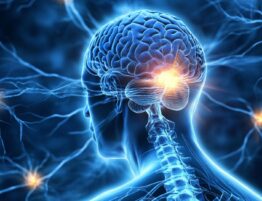Regular yoga practice helps strengthen the immune system and reduce inflammation throughout the body. Yoga serves as an excellent form of exercise for reducing fatigue and chronic stress. The yoga brain health benefits include proper breathing exercises and focused concentration during practice sessions. Every day, people constantly face anxiety, noise, and various environmental stressors. To combat these stimuli, physical activity provides the best recovery method, and yoga helps reduce depression while positively affecting neuroplasticity.
Yoga has a comprehensive effect on the nervous system, leading to significant improvements in brain function. People can reduce inflammation through regular yoga practices, and studies demonstrate yoga’s positive impact on brain health. It helps increase levels of important neurotransmitters like dopamine and serotonin while reducing cortisol, which leads to decreased depression and stress. Yoga and neuroinflammation have been interconnected for years, as yoga reduces inflammation, helping lift mood and improve mental clarity. Regular practice helps achieve maximum levels of productivity and inner calm.
How Yoga Affects Brain Plasticity
Constant stress, depression, and frustration can lead to neurological inflammation, which is serious and can cause neurodegenerative diseases. Chronic depressive states can contribute to conditions like Alzheimer’s disease and Parkinson’s disease. In such cases, people need quality medical care provided by specialists like those at LoneStar Neurology, where a team of professionals helps address these issues in cities such as McKinney and Sherman. In fighting common neurological symptoms, yoga provides an excellent solution. Brain plasticity yoga practice works together to form new neural connections. Here’s how yoga affects neuroplasticity:
- Gray Matter Enhancement. Yoga increases gray matter volume, which directly affects memory function. It helps improve cognitive clarity and enhances synaptic connectivity, making yoga an excellent choice for neurological flexibility and healing.
- Neurotrophic Factor Stimulation. Yoga stimulates and increases levels of neurotrophic factors in the brain. This process helps form new neurons and promotes their growth while reducing cortisol levels to restore optimal brain function. People create the necessary environment for improved mood and enhanced memory.
- Emotional Regulation Improvement. Brain plasticity yoga practice approaches work together to improve emotional regulation. Yoga helps relax the psychological state while activating muscle groups. This physical activity builds new emotional responses and behavioral patterns while improving memory and focus on specific tasks. Yoga and meditation through breathing exercises activate both brain hemispheres effectively.
Yoga and Stress-Related Brain Inflammation
Yoga and neuroinflammation are interconnected for long-term health benefits. Regular yoga practice helps reduce brain inflammation and restore cognitive functions, making yoga an excellent tool for stress management. Chronic depression and negative moods can become obstacles to living a full life, and everyone can take control of their well-being through regular yoga practice. Here’s how yoga reduces inflammatory processes in the brain:
- Cortisol Reduction. Physical activity helps reduce cortisol levels, thereby decreasing the stress hormone that contributes to improved mood. This reduction affects anti-inflammatory cytokines that can negatively impact brain function. People become less depressed over time, experience reduced stress, and can create safer emotional environments.
- Nervous System Activation. Yoga and neuroinflammation are connected through active human engagement. Yoga activates the parasympathetic nervous system and puts the human psyche in positive states. People can experience calmness even in anxious situations, with the main advantage being the ability to think clearly and solve problems calmly.
- Amygdala Activity Reduction. Yoga reduces amygdala activity, which helps relieve chronic stress responses. One of yoga’s most significant benefits is improving overall quality of life. People work both physically and emotionally to relax during yoga practice, and with regular sessions, sleep quality improves, allowing for better rest.
- Anti-inflammatory Chemical Increase. Physical activity increases levels of anti-inflammatory chemicals in the brain. As a result, yoga can improve emotional stability and reduce various inflammatory processes while positively affecting the digestive system. Long-term yoga practice helps reduce inflammation and maintain good gut health.
Yoga as Therapy for Neurological Conditions
Long-term neurological recovery yoga approaches become possible for everyone. Yoga serves as excellent therapy and practice for all individuals, proven as a therapeutic tool for minimizing disease symptoms. Physical activity helps focus attention on both physical and mental states. Yoga includes physical movement combined with concentration and breathing exercises. Through this process, people create incredible connections with themselves while yoga supports simultaneous healing of the brain and body. Here’s how yoga affects neurological conditions:
- Stroke Recovery. The neurological effects yoga produces become noticeable after stroke events. Yoga can improve coordination of movements and memory function while significantly impacting muscular system balance over time. Studies show substantial effects of yoga on stroke recovery, as people can reduce fall risk and learn to control their bodies again.
- Trauma Recovery. Yoga provides an excellent way to recover from injuries. Often, trauma creates significant problems with coordination or emotional regulation. Yoga, as an excellent physical activity, includes breathing exercises that help calm the nervous system and reduce stress. Neurological recovery yoga practices are interconnected for long-term healing.
- Cognitive Decline Recovery. Yoga offers the best approach for recovering from cognitive decline. The combination of meditation and physical exercise works excellently for developing memory and concentration. Regular practice helps improve mental abilities and increase hippocampus volume. Many people use yoga after various neurological diseases and cognitive decline, with the neurological effects yoga provides becoming noticeable over time through consistent practice.
Reducing Neuroinflammation Through Movement
Yoga has direct biochemical effects on brain inflammation and serves as an excellent tool for reducing neuroinflammation through active movement. It’s used as modern therapy to relieve many symptoms while preserving brain activity and minimizing neurodegenerative disease risk. Yoga and neuroinflammation are often linked in long-term therapeutic approaches. Here’s how yoga supports the brain at biochemical levels:
- Stress Hormone Regulation. Yoga helps reduce cortisol levels, the most important stress hormone. As a result, yoga helps establish correct breathing patterns, characterized by improved mood. This approach is excellent for restoring nervous system function and improving emotional regulation.
- Anti-inflammatory Element Enhancement. An equally important benefit is increased levels of anti-inflammatory elements in the human body. Cytokines help counteract inflammatory processes, reducing neurodegenerative disease risk. Yoga reduces inflammatory markers and fights chronic inflammation effectively.
- Immune Response Improvement. By linking yoga and neuroinflammation, everyone can understand this exercise’s significant impact. Yoga improves brain recovery and growth after specific injuries while minimizing inflammation and restoring health. Physical activity directly impacts immune responses, and reducing ongoing inflammation helps maintain health and immunity.
Mental Clarity and Cognitive Function from Yoga
Researchers frequently associate yoga with improved cognitive function. Performing physical exercises along with breathing practices benefits overall health significantly. Physical exercises help focus on specific stages and moments while people improve concentration by tracking their actions, directly affecting cognitive function. Breathing practices help focus attention and improve memory. Today, yoga is becoming a research focus for reducing neurodegenerative diseases. Stress reduction yoga brain benefits provide integral advantages for long-term performance. Here’s how yoga directly affects cognitive abilities:
- Concentration Enhancement. Yoga improves concentration through breathing practices and meditation. People can relax or concentrate in particular poses, and this focus helps stay present while thinking about positive things. Individuals focus on single tasks, strengthening concentration and memory.
- Memory Improvement. Memory plays a key role in daily life and work performance. Yoga helps improve brain function, enhancing memory capabilities. People remember better and develop long-term learning abilities while properly coping with emotions. Yoga helps control impulses and reduce depressive states.
- Decision-Making Enhancement. Yoga cognitive function benefits include stress reduction and improved decision-making without stress interference. It helps reduce mental fatigue while promoting relaxation. Breathing practices relax the brain and create positive environments, while physical exercises provide the best emotional relief and concentration enhancement.
Adding Yoga to Neurological Recovery Plans
Yoga helps achieve maximum neurological recovery yoga outcomes by creating necessary balance between mind and body. Introducing yoga practices into daily life is essential for everyone, as yoga helps people relax, reduce brain overload, and relieve stress. Through excellent practices, people achieve maximum levels of productivity and rest simultaneously. It’s essential to consider all neurological effects yoga provides and begin practicing today. Here’s what to consider before starting yoga:
- Medical Consultation. Consultation with healthcare providers is mandatory before starting yoga practice. Doctors help people become familiar with specific exercises that will be beneficial for individual needs. For people with post-traumatic syndromes and neurological diseases, yoga is particularly recommended.
- Gradual Introduction. It’s essential to start with easy exercises for familiarization and comfort. Several basic exercises help people recover and experience yoga’s effects. Everyone can begin with breathing practices that directly impact emotional regulation and stress reduction.
- Proper Technique Focus. The yoga brain health benefits are integral through correct practices and exercises. It’s essential to focus on proper breathing techniques and maintain consistent time intervals. Mindfulness and meditation are key components during yoga practice, as meditation helps reduce cortisol levels while improving emotions and mood.
Daily Practice Implementation. Implementing practice for thirty minutes daily provides the best results. People can improve mood and sleep quality while reducing inflammation. Individuals adapt to practice routines and experience significant relief from psychological perspectives, maximizing stress reduction yoga brain advantages.













I've given up... the stress her office staff has put me through is just not worth it. You can do so much better, please clean house, either change out your office staff, or find a way for them to be more efficient please. You have to do something. This is not how you want to run your practice. It leaves a very bad impression on your business.
Please, leave your review
Write a comment: